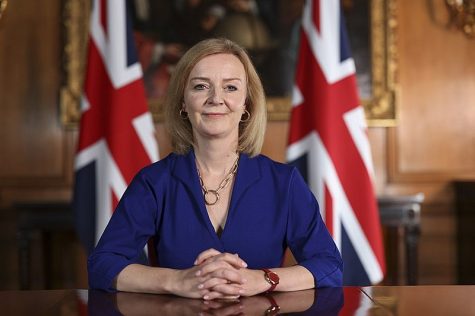Why the UK had Three Prime Ministers in Seven Weeks
January 11, 2023
On July 24, 2019, Boris Johnson, preceding Theresa May, became the leader of the United Kingdom’s conservative party, but more importantly, became the Prime Minister of the country. After a little more than two years in office, Johnson resigned from the role of Prime Minister, and was succeeded by Liz Truss. Liz Truss was the last Prime Minister appointed by Queen Elizabeth II in her lifetime, as only three days later, the Queen passed away. However, only after 50 days in office, Liz Truss resigned as Prime Minister

and was succeeded by Rishi Sunak in being Leader of the Conservative Party and Prime Minister, making her the shortest-serving Prime Minister in UK history.
However, it doesn’t start just there. Since the middle of 2007, there have been six prime ministers. This is in stark contrast to the twenty-eight years before then, when there were only three.
Experts believe that the cause of the rapid change in the United Kingdom’s Prime Ministers is due to the Brexit referendum in 2016. The Brexit referendum was the vote in the United Kingdom that decided the fate between the country and the European Union; to stay or not stay. Due to the referendum, following six years in office out of the eight years he could’ve served, the Prime Minister that endorsed the referendum, David Cameron, resigned.
Theresa May was made prime minister after Mr. Cameron’s departure. She held the position for three years and eleven days, while, proceeding her, Boris Johnson held it for three years and forty-four days.
The 2017 election and the fact that she and the Conservative Party couldn’t agree on what Brexit meant, put Theresa May into a difficult situation, leading to her resignation.
The Conservative Party believed Boris Johnson could break the standstill in Brexit, but one of the ways he did it was by paying little attention to the conventional procedures involved. This caused Boris’s downfall and resignation.
Liz Truss’s brief seven-week premiership was a direct result of the Brexit vote. Experts believe the membership has changed quite a bit. They were prepared to hear the advice to defy conventional wisdom. However, they found that when they defied common knowledge, they collapsed.
The Brexit vote has had destabilizing effects on the British political system. Finding the appropriate connection with Europe has been challenging for the government.
Along with Brexit being an issue, it is cited by other professionals that one of the reasons why prime ministers’ mandates aren’t lasting as long as the “presidentialization” of the UK’s parliamentary system or the increased emphasis on party leaders. The leader is frequently held personally accountable for anything that goes wrong since voters and politicians place a lot more emphasis on party leaders than on the party as a whole, similar to in the United States.
It is added that Jeremy Corbyn, the former leader of the Labour Party, was the notable exception to the trend in 2017, and that it is now pretty well impossible for a party leader to lead his or her party after an election defeat.
Rishi Sunak, at age forty-two, is the nation’s youngest prime minister in more than two centuries. Since he was first elected as a member of parliament in 2015, he has advanced through the ranks of the Conservative Party.
Members of parliament have the ability to establish a reputation for themselves quite rapidly after joining. As a result, parliamentary politics have grown unstable. It used to be more hierarchical, but today’s Members of Parliament are said to be too hungry to progress and would take more drastic measures, such as talking to the media to gain notoriety.
The emergence of social and digital media is also said to have significantly altered how people perceive politicians. Prior to social media, although they weren’t anonymous, politicians weren’t the celebrities they are today. That influences how voters perceive politics.
Experts assume that Sunak will possibly start a new, more stable, period in British politics, and will be in office for at least two years. However, it is forecasted that depending on his approval ratings, Mr. Sunak could face difficulties during the upcoming local council elections, and may not be in office for two years.
Other Westminster-style systems share the same issue. Due in part to so-called spill elections, Australia, which has a parliamentary system as well, has had nine prime ministers in the past 12 years. Rapid leadership changes happen when party members believe the leader is leading them in the wrong direction or is not keeping the promises they made to the voters while lacking the support of the majority.
Some people think that leadership spills and elections are in the near future for the United Kingdom. Leadership spills are the declaration that the leadership of a parliamentary party is vacant and open for re-election. The Conservative Party is now conducting full-scale spill election operations. Cameron was threatened in 2016, spill elections were used against May, and Johnson, and then they were used against Truss. Now the world must watch and see what happens to Sunak as his premiership continues.
When asked about her thoughts on the information found, Hannah Kapel, 8, says “This is very interesting information. I’ve always wondered why the UK has had so many prime ministers and how their government works. Now, these questions have been answered.”







